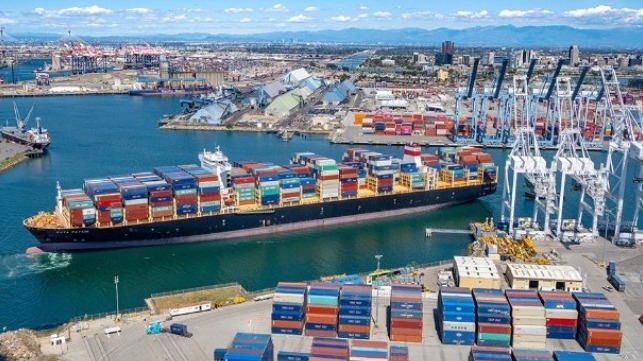FMC Broadens Ocean Carrier Inquiry to Examine Surcharges

In addition to its fact-finding mission targeting excessive container fees, limited container availability and potential carrier retaliation against shippers, the Federal Maritime Commission is launching an inquiry into ocean carrier surcharges - including congestion surcharges related to the ongoing surge in freight demand.
Eight ocean carriers have been asked to provide the FMC's Bureau of Enforcement with details about their congestion surcharges and any related charges. The expedited inquiry gives the carriers until next Friday to provide evidence that their surcharges were put in place in compliance with FMC's regulatory requirements. The companies contacted include CMA CGM, Hapag-Lloyd, HMM, Matson, MSC, OOCL, SM Line and Zim.
The commission has heard from multiple stakeholders that ocean carriers are improperly implementing new surcharges amidst the current spike in rates. In the U.S., carriers must meet specific regulatory requirements for tariff changes or rate increases, including a 30 day notice period for shippers.
“The COVID-related spike in demand for imports has pushed cargo rates to record highs,” said FMC Chairman Dan Maffei. “Now, we hear increasing reports of ocean carriers assessing new additional fees, such as ‘congestion surcharges,’ with little notice or explanation.”
Based on the carriers' responses, the FMC will determine if surcharges were implemented following proper notice; if the purpose of the surcharge was clearly defined; if it is clear what event or condition triggered the surcharge; and is it clear what event or condition has been identified that would terminate the surcharge. If it finds any improperly established tariffs, the commission can take enforcement action.

that matters most
Get the latest maritime news delivered to your inbox daily.
The inquiry comes as freight rates on virtually all container routes soar to new heights, driving unprecedented profitability for ocean carriers. Strong consumer demand, booming Chinese production and widespread container shortages have also created unusual financial incentives - like the extra margin that carriers can earn by shipping empty boxes back to China as quickly as possible. The surge in traffic has also created backlogs at U.S. West Coast ports, accompanied by delays affecting trucking and rail to points inland.
"Far from being a sudden occurrence or isolated to a port or geographical area, congestion of the freight transportation system is everywhere and has been going on for many months," said Maffei. "It seems to me that these factors would already have been included into the record high rates charged by the carriers. As chairman, I want to know the carriers’ justifications for additional fees."
